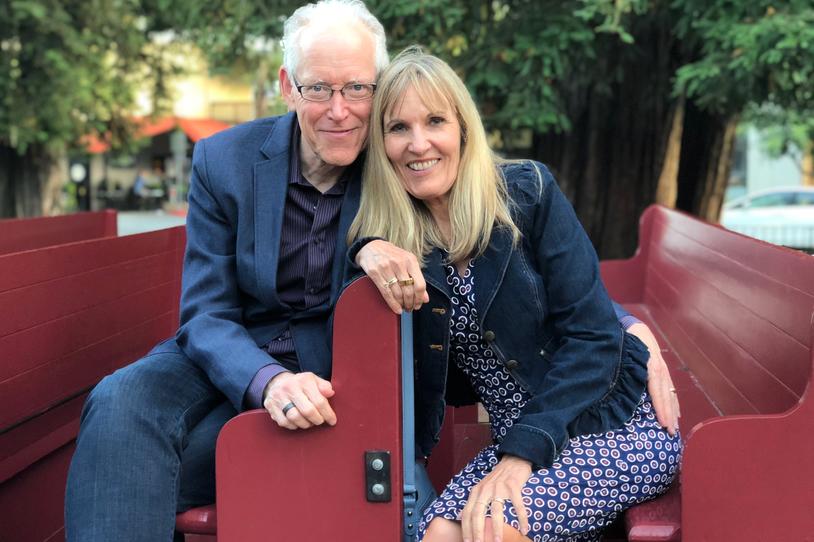
Brian Duggan and his wife, Debbie.
Brian Duggan, 67, lives with REM sleep behavior disorder, which is when you act out dreams while asleep. It’s a risk factor for Parkinson’s disease, and many people with Parkinson’s experience it after diagnosis. The Foundation’s landmark study, the Parkinson’s Progression Markers Initiative (PPMI) is now recruiting people with risk factors including individuals who act out their dreams while asleep. Learn more at michaeljfox.org/ppmi.
Risk and the Search for Resilience
My journey started when I fell out of bed. My wife and I didn’t think much about it. But then it happened again, along with yelling in my sleep, as well as thrashing and acting out my dreams, sometimes in violent ways. In 2015, we realized it could be something serious and turned to the internet to find out more. Fortunately, there were some credible resources, like the Mayo Clinic and The Michael J. Fox Foundation (MJFF), that had useful information.
Turns out, my symptoms were a perfect match for REM sleep behavior disorder (RBD). I also learned that this means I am at higher risk of developing a more serious neurological condition including Parkinson’s disease.
I did not have good health insurance at that time, but I was able to enroll in an observational study I found through Fox Trial Finder (MJFF’s online study matching tool). It was there, at University of Texas Health Science Center, that I had my first sleep study and examination, and learned how powerful participating in research can be.
I am very grateful to study lead Mya Schiess, MD, who gave me valuable personal feedback both then and over time, while also offering me and others the chance to contribute to important research.
Since then, my focus has squarely been on doing everything I can to try to keep myself among the percentage of people with RBD who won’t progress to more serious disease. I’ve made major changes to my life regarding exercise, diet, fasting, sleep and stress reduction — what Dr. Schiess describes as “the basics, which are basic for a reason.”
I am getting great care from a neurologist here in the San Francisco Bay Area, who prescribed melatonin. With the combination of that and other aids, I find that my symptoms are well controlled, though by no means gone. Most importantly, with lots of support from my wife (who often bears the brunt of my symptoms, even if I sleep through them), we've been able to create a safe sleep environment featuring a bed low to the floor and lots of pillows.
I especially am glad to see MJFF’s landmark Parkinson’s Progression Markers Initiative (PPMI) study expand to focus on people like me. We are an important group to research, as many would describe my symptoms as being part of the early stage of Parkinson’s. While I don't have any daytime motor symptoms myself, I do have other non-motor symptoms, such as loss of smell and some autonomic issues. And I recognize that these, like RBD itself, are symptoms that people like me share with many in the Parkinson’s community.
We certainly all share the desire to slow down symptoms and progression, and to be as resilient as possible in the face of neurological disease. I am hopeful that my participation in studies like PPMI can serve as my contribution to this vitally needed research and can hopefully over time lead to true scientifically proven cures and prevention strategies.
PPMI is recruiting people with Parkinson’s risk factors including individuals who act out their dreams while asleep, first-degree family members of people with Parkinson’s, and people with Parkinson’s-linked genetic mutations. Take a short survey to get started at michaeljfox.org/ppmi.
Hear from Brian and other panelists on our webinar, Night Fight with Parkinson’s: Acting Out Dreams, Insomnia and Other Sleep Issues.